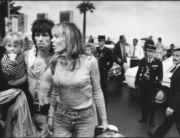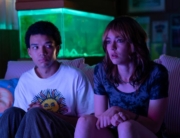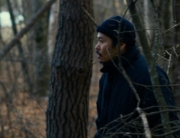![]() Strong Island intimately examines the personal story of one African American family on Long Island and finds the context and meaning to tell a larger American truth. This year is the 25th anniversary of the Los Angeles riots that roiled the nation over issues of justice for African Americans; if director Yance Ford’s older brother William had survived being shot by a white man in 1992, he would be 50.
Strong Island intimately examines the personal story of one African American family on Long Island and finds the context and meaning to tell a larger American truth. This year is the 25th anniversary of the Los Angeles riots that roiled the nation over issues of justice for African Americans; if director Yance Ford’s older brother William had survived being shot by a white man in 1992, he would be 50.
Both the family and the larger history are grounded in the Great Migration from the South. If Yance’s direct, almost claustrophobic, narration to the camera wasn’t so intense, the close-ups of family photographs could have been out of a Ken Burn project: a grandmother in South Carolina, who left school to work processing tobacco and raised three daughters, all of whom graduated from college. Of childhood sweethearts Barbara Dunmore and William Ford, who left behind Jim Crow for a cozy apartment in Brooklyn. Then onward to their steady civil service jobs in order to move their children, Yance and two siblings, to a house in Central Islip, one of the few suburban neighborhoods that was historically redlined to permit black families. Yance’s sister, Lauren, also proudly reflects on Barbara’s career as a principal who set up a school for women inmates at Rikers Island prison. Her son, William Jr., was a teacher there.
In 1992, Yance was a freshman at college studying art when the call came that would shake the family’s lives. Yance’s on-screen conversations with mother and sister are the first the family has shared together about William Jr.’s death and its aftermath: the hospital, the confusion dealing with the police, district attorney, and the grand jury. Most of all is their heartbreak and resentment that the perpetrator went free by claiming what is sorrowfully familiar: the white mechanic felt threatened by a large, black man approaching him and claimed he had to shoot to defend himself. Thus, the unarmed William was transformed into the attacker. Two weeks after the funeral, Yance watched the L.A. riot unfold on TV. The grieving family was left bereft.
Yance pieces together the circumstances of the murder and from many angles bitterly reflects to the camera how the authorities mishandled the case through their racist lens. The site of the night-time altercation is revisited, official documents are requested and scanned, and efforts are made to find people in law enforcement who remember the case. Lawyers are also contacted, with mostly frustrating results. The shades of the Trayvon Martin murder case in 2012, among others, are a disturbing lesson in how the more things change, the more they stay the same.
More family memorabilia from the past is found, especially William’s journal. The hopes and strivings of the young man come into focus, beyond the siblings’ and his best friend’s memories. Yance, too, feels frozen in time as the younger sibling William knew, and is full of regret for not being able to include him in his transgender transition. The director’s frequent image on screen acutely represents how the personal is political.
Yance for many years worked as series producer on PBS’s documentary series POV and looked to the films of Chilean filmmaker Patricio Guzmán for a model (most recently The Pearl Button). Only a handful of autobiographical films rise beyond trivia or personal angst to become as powerful as Strong Island.







Leave A Comment